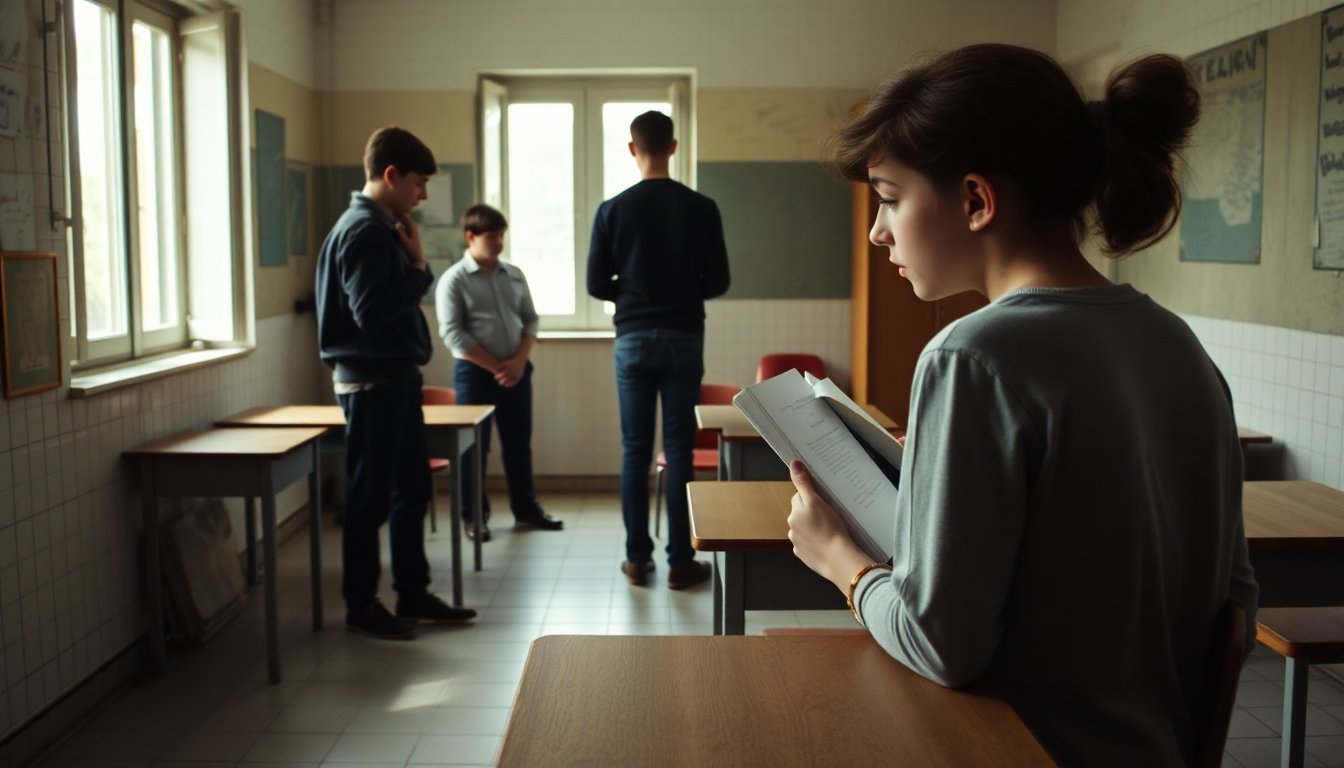Table of Contents
In the realm of contemporary cinema, few films capture the complexities of desire and gender dynamics as effectively as Laura Samani’s latest offering, ‘A Year of School’. Following her successful debut with ‘Small Body’, Samani’s new film has garnered critical acclaim, including the best actor award at the Venice Film Festival for newcomer Giacomo Covi. Set against the backdrop of Trieste in 2007, the narrative centers on Fred, a young Swedish woman navigating the intricacies of an all-male senior class in a technical high school. This film intricately weaves themes of sexual politics, desire, and the societal expectations that shape them.
The Narrative and Its Context
‘A Year of School’ is inspired by a book of the same name, loosely adapted to reflect the director’s own experiences. Samani recalls her time at the same school, where she was often the only girl in a group of boys. This personal connection adds a layer of authenticity to the narrative, exploring the tensions and dynamics of emerging desire within a mixed-gender environment. The characters each harbor their romantic aspirations toward Fred, leading to a tapestry of emotional conflicts and explorations of masculinity and femininity.
As Samani explains, the film delves into the nuances of desire, stating, “I’m just talking about bodies here, not about inclinations or anything.” This focus on the physicality of desire highlights the differences in how male and female characters express their feelings. The societal structures in place often dictate how these desires are perceived and acted upon, especially in a school setting that magnifies the pressures of adolescence.
The Casting Process and Character Development
A notable aspect of ‘A Year of School’ is its casting, which features primarily non-professional actors. Samani’s collaboration with casting director Davide Zurolo facilitated an authentic representation of youth. The director emphasizes the importance of protecting her actors, a sentiment that resonates throughout the casting process. The search for talent involved scouting local bars and cafes in Trieste, where the director and her team engaged with young adults to find the right fit for their characters.
Among the cast, Giacomo Covi shines as Antero, while Pietro Giustolisi portrays the charming yet vulnerable Pasini. Samuel Volturno’s portrayal of Mitis adds a protective dimension to the trio. Each actor brought their unique experiences and perspectives to the film, enriching the narrative with genuine interactions and chemistry. The casting of Stella Wendwick as Fred was equally serendipitous, discovered through a casting call in Stockholm. Her journey to learn Italian for the role further emphasizes the film’s exploration of communication and emotional expression.
The Importance of Music and Cultural Context
Music plays a pivotal role in ‘A Year of School’, with a soundtrack that reflects the indie rock scene of the time. Samani’s decision to feature local bands from the Pordenone area adds a layer of cultural authenticity, anchoring the film in its setting. The final track, “Più niente” by Prozac+, resonates with the narrative’s themes of longing and nostalgia. Samani’s personal connection to the music of her youth brings an additional layer of depth to the film, as she collaborates with artists to rework the song for a modern audience.
The integration of music not only enhances the emotional landscape of the film but also serves as a reminder of the era’s cultural milieu. The use of regional dialects and contemporary references enriches the narrative, allowing audiences to connect with the characters on a deeper level.
Conclusion: A Film of Its Time
Laura Samani’s ‘A Year of School’ is more than just a coming-of-age story; it is a poignant exploration of desire, identity, and the intricacies of gender dynamics within a youthful setting. As the film prepares for screenings in international festivals, it promises to resonate with audiences who appreciate nuanced storytelling and authentic character portrayals. By navigating the complexities of sexual politics, Samani invites viewers to reflect on their own experiences and the societal norms that shape our interactions.


